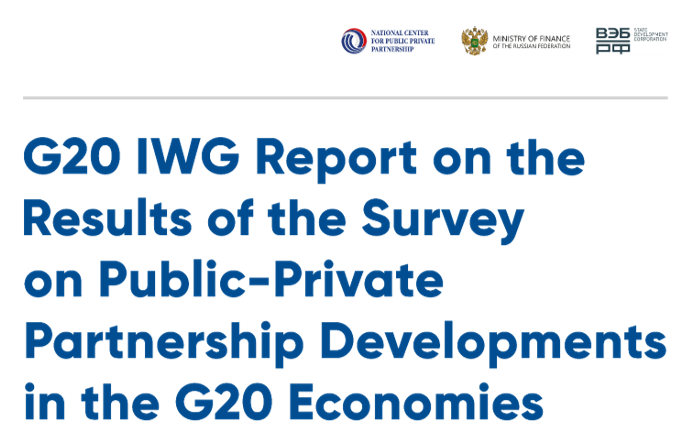Publications
Filter by
276 results found


Risk allocation is at the centre of every PPP transaction, and a deep understanding of the risk allocation arrangements is a precondition to the drafting of every successful PPP contract.

The paper Partnering to Build a Better World: MDBs Common Approaches to Supporting Infrastructure Development presents a brief description of how MDBs work with their Borrowing Member Countries (BMCs) .


InfraTech is defined by the G20’s Infrastructure Working Group (IWG) as “the integration of material, machine, and digital technologies across the infrastructure lifecycle” and is supported by three reference notes produced in collaboration between the G20 IWG, the World Bank and the GI Hub: 1) The InfraTech Stock Take of Use Cases; 2) The Value Drivers for InfraTech; and 3) The InfraTech Policy Toolkit.


In just a few years, ESG, also known as sustainable or responsible investing, has moved from a slightly idealistic nicheto front-page, a mainstream dimension for investors, one that strongly influences the performance and resilience of their investment over time. This is particularly the case in infrastructure, in view of its wide reaching and long-term consequences for the community.

A series of methodologies and tools based on the evidence-based infrastructure (EBI) approach, helping governments assess and improve their capacity to plan, deliver and manage infrastructure systems.


The G20 Infrastructure Working Group (IWG) Survey on PPP Development underlying this Report provides reference on the frameworks for infrastructure financing through Public-Private Partnership in G20 economies


The Reference tool is meant to serve as a practical tool to help governments and other stakeholders understand and implement the critical success factors that deliver inclusive infrastructure.

The objective of the report and the accompanying index is not simply to rank countries, but to use score movements as a benchmark from which to investigate trends, identify successful PPP performers, and focus on the approaches that can facilitate a better understanding of common challenges and best-practice standards.


OECD Investment Policy Reviews present an overview of investment trends and policies in the countries reviewed, using the OECD Policy Framework for Investment to assess the climate for domestic and foreign investment at sub-national, national or regional levels. They then propose actions for improving the framework conditions for investment and discuss challenges and opportunities for further reforms.



As part of its Public Procurement Toolbox, the OECD developed indicators to measure the performance of public procurement systems.



The OECD Recommendation on Public Procurement is the overarching OECD guiding principle on public procurement that promotes the strategic and holistic use of public procurement.


The Global Toolbox provides an interactive inventory of MDB instruments, with their hyperlinks and comprehensive overviews, to support private investment across the globe.

The review consisted of a detailed assessment of the current institutional set-up, including roles and responsibilities for EE in Turkey, along with a comparison with international experience and best practices. A final set of institutional options and recommendations are provided at the end of the report.

PPP webinars presents trending topics on PPPs and infrastructure, as well as the latest tools for practitioners, case studies, and presentations from experts.

This report assesses infrastructure PPP investments in an expanded list of Fragile and Conflict Affected States (EFCS2), as well as the PPP regulatory frameworks during the 2012-2016 period.
Lifelines lays out a framework for understanding infrastructure resilience—the ability of infrastructure systems to function and meet users’ needs during and after a natural shock—and it makes an economic case for building more resilient infrastructure.


 View the PPP Risk Allocation Tool website
View the PPP Risk Allocation Tool website

